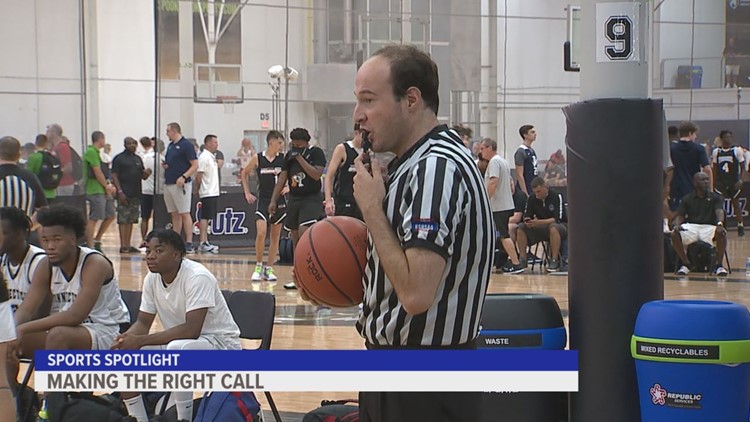MANHEIM, Pa. — Will Fried is no stranger to a classroom environment.
"I'm a grad student at Fort Hayes State University, where I'm working on my master's degree in higher education and student affairs," said Fried.
When he's not studying for school, the Maryland native is attending referee clinics, like the one at Spooky Nook this month.
"I came to this camp to learn how to be a stronger basketball official and grow the game for myself," added Fried.
Fried is gearing up for his sixth season as a referee, but his story isn't that black and white.
"Basketball has helped me overcome a lot of obstacles, including coming of out of my shell as someone on the autism spectrum," said Fried. "And part of the reason why I ref is because I like seeing how players grow and develop throughout the game, as well as the camaraderie that there is in the officiating community."
As someone on the autism spectrum, the court has always meant a little more to the Kansas ref.
"Wanting to have the power of inclusion as someone who has a disability and I'll be allowed to do things that my peers without disabilities are, added Fried. "I just watched a lot of women's college basketball and I saw what the referees were doing and I said 'I want to learn and watch them and grow into this position.'"
He deals with adversity every day, but he's not content with what he's accomplished, so attending these ref camps allows him to improve on his craft.
"You have to learn about how to get into the right angle because I want to help get my community better, of basketball officials, and know how to analyze different plays so you can communicate effectively with players and coaches," said Fried. "You still have to learn like you're going to school and learn to be coachable."
They also allow him to expand his network and learn from others. Those mentors have helped him set his sights on reffing varsity game this season, and women's college basketball down the road.
"I think my goal is to pick three things to get better at each game because you never know who's going to watch and you have to have the short-term goals, and the long-term goals in this profession," added Fried.
It's not lost on Fried what it means to others who have walked a similar path, to see him on the court.
"As an individual on the autism spectrum, I've had colleagues that told me it's important to find people and see that you can go to someplace, create a new path, but you have to leave a new trail and I hope that my officiating work can create new paths and trails for other individuals with all disabilities at any age."



